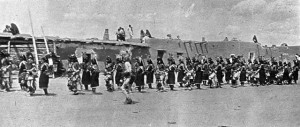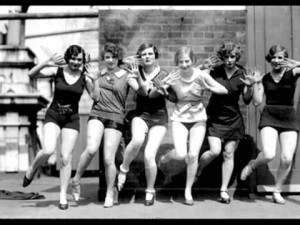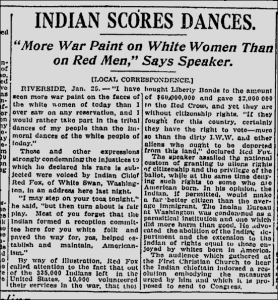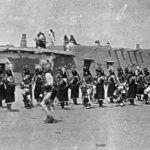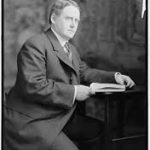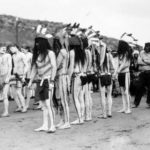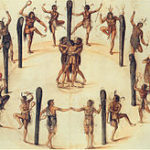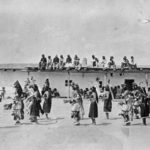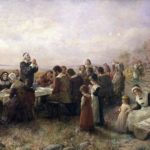The controversy over Native American dancing did not arise all at once, of course (see last post). European settlers were often surprised at the energy and freedom inherent in many ceremonial dances, but unfortunately attributed much of it to the “uncivilized” status of Native Americans. The issue came to the forefront in the 1920s, when Native American dancing caused consternation and shock among certain segments of white society, and rallied others to the cause of Native American freedom of religion. Reformers came down on both sides of the question, with some pursuing “moral” objectives, and others advocating cultural and religious freedom, and feminist goals.
Ironically, the freedom that white women experienced in the 1920s probably had a great deal to do with the sudden interest and concern over Native American dancing, particularly Pueblo dancing. As some of the shackles fell off white women who were enjoying newly-won freedoms like smoking, drinking, driving, expressing their sexuality, and outrageous dancing themselves, tradition-bound women who were horrified by the changes in society wanted to stop them. The “Indian Dance Controversy” became a lightning rod for both groups.
The Bureau of Indian Affairs had previously concerned itself mainly with the dancing of Plains Indians. The Ghost Dance, Sun Dance, and other important ceremonial dances were (in their opinion) more likely to interfere with assimilation or to whip up a warlike spirit. It was not until around 1915 that Pueblo dancing came to the BIA’s attention, via a report by P. T. Lonergan, Superintendent of the Pueblo Day schools. He found Pueblo dancing immoral and some “particulars being so bestial as to prohibit their description.” Lonergan, himself, was a target of an immorality probe by reformers, but managed to divert attention from his own actions to those of the Pueblo.
